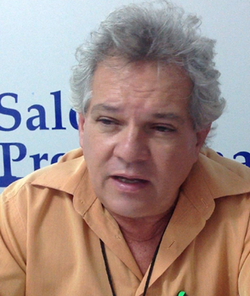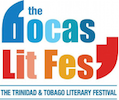
Talk to anyone in the Caribbean publishing industry and the absence of a literary agency is high on their list of challenges. In fact, the creation of a regional literary agency was one of the recommendations that emerged at the first meeting of the Caribbean Literature Action Group in Port of Spain in 2012.
One potential model for what such an agency would look like is the Agencia Literatura Latinoamericana (Latin American Literacy Agency), an arm of the Instituto Cubano del Libro (Cuban Book Institute). It was created in 1985 to represent the rights of Cuban authors. The objectives of the agency are to promote Cuban literature abroad and to represent authors in negotiations with foreign publishers. Cuba has had a national copyright law since 1977 and is a signatory of the copyright conventions of the World Trade Organization.
With a small staff of seven, including four experts in copyright law, promotion and representation, the agency represents the rights of the authors and facilitates the payments of their royalties. It undertakes a year-long programme of activities designed to identify new opportunities for writers – tracking trends in publishing in existing and emerging markets for Spanish-language literature, analysing the catalogues of international publishers and watching their moves to identify those who may be interested in Cuban authors. It develops and maintains the necessary relationships with foreign publishers, introduces new Cuban authors to publishers, negotiates the most advantageous contracts for the authors and manages the payments of their royalties.
“We maintain relationships with foreign publishers and promote groups of authors according to the genres in which they write,” says Daniel Garcia Santos, the agency’s director. “Once we identify any interest in publishing a certain work in a certain country, we negotiate with the publisher and we protect the authors’ royalties.”
The agency has a promotion catalogue which is disseminated to the international publishing community. While the Havana Book Fair is its major forum for showcasing the work of Cuban authors, it maintains an active presence at international book fairs and promotes different groups of Cuban authors according to the profile of each fair. “We have a tradition of participating in these fairs so we understand the differences and the interests of each market,” says Garcia Santos. “If we’re going to a fair for the first time, we try to gain some minimum knowledge of the market and then try to select the right authors for that fair. We do promotion in advance so that our attendance is effective.”
Garcia Santos cites as a key example the Frankfurt Book Fair, which he calls a critical space for the promotion of literature and the negotiation of international rights. The agency participates every year. For Frankfurt, the emphasis is on young Cuban writers who have won literary prizes and received strong critical reviews. For the Guadalajara Book Fair in Mexico, the agency prioritizes the winners of Cuba’s most important writing prizes.
“Our agency is given top priority, because it is important to the state to promote our literature and protect our authors,” says Garcia Santos. “We try to get contracts which are as beneficial as possible for our authors. When authors negotiate individually with publishers, sometimes the negotiations aren’t as beneficial.”
The agency retains a percentage of the royalties it negotiates for its authors (to a maximum of 15%). What the agency generates over the course of a year depends on the number of contracts it’s able to negotiate, the authors signed and the genres in which they work. Garcia notes that soap opera scripts are a strong income area, generating $30,000 to $40,000 in revenue.
The agency now has a wide network of relationships with international publishers and has built deep institutional knowledge of which areas and markets are most accessible for Cuban literature.
“The international market is very difficult. Inserting yourself and Cuban authors who are not known is very difficult. We work very hard to find areas where we can insert contemporary Cuban authors. Some of our authors are very well known and the requests come. But there are many others that we have to promote.”
Garcia Santos calls for more collaboration between Spanish-speaking and English-speaking Caribbean publishers. “Sometimes we are a little isolated. We should establish relationships among publishers across the region. We have a common culture. We should have communication channels, systems that allow us to share the knowledge we have of these areas. That’s the only way we have access to these markets which are distant and difficult. Communication is of the essence.”
When asked how other Caribbean islands can follow Cuba’s model for negotiating international rights, Garcia Santos recommends developing a Caribbean organization for driving international promotion and rights sales. “It’s difficult for the author in isolation to access this world. An institution that has a cultural interest and an interest in the promotion of our literature should make the effort.”
Translation provided by Vladimir Dominguez.

 RSS Feed
RSS Feed


